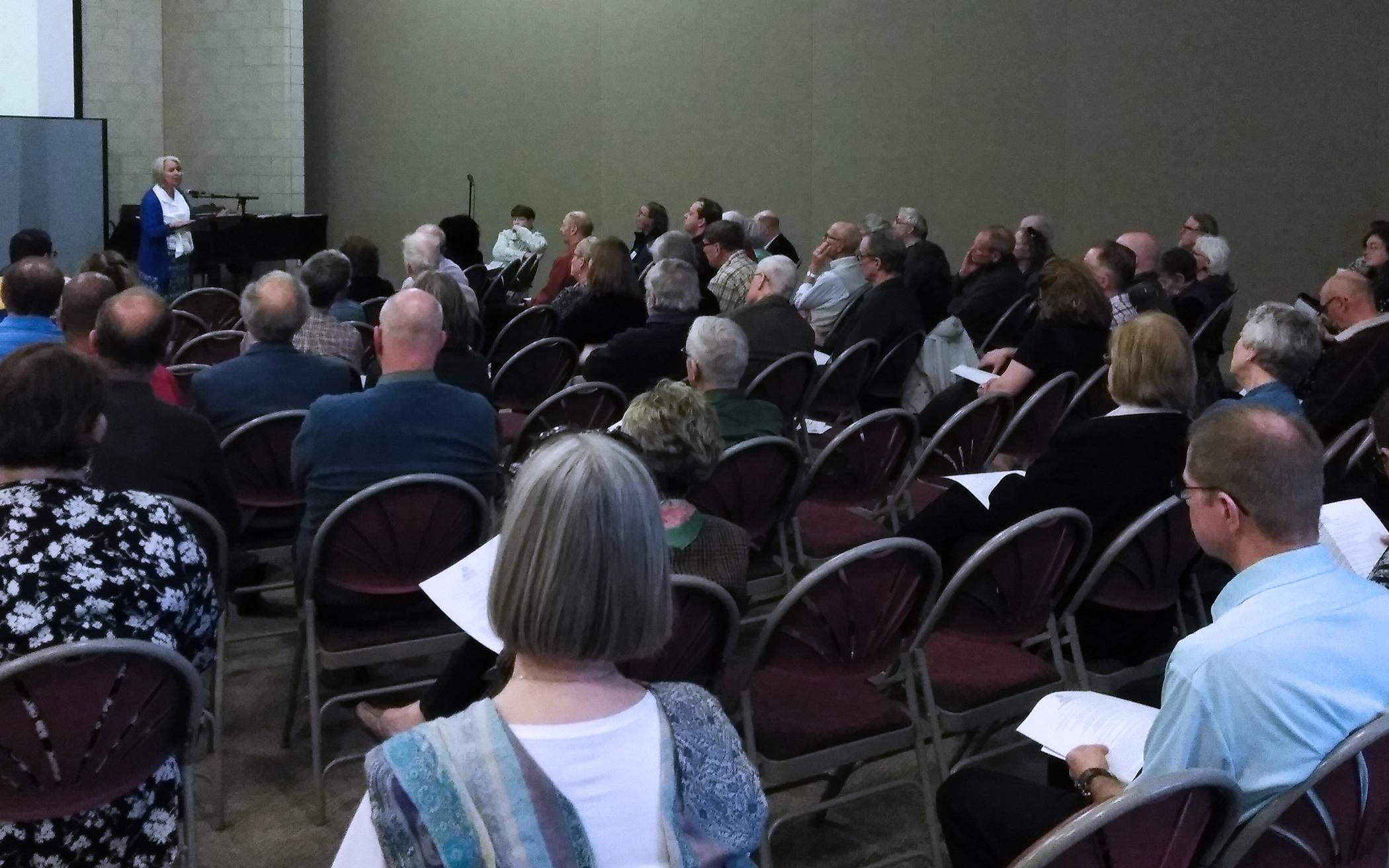“We cannot incarcerate our way to healthier families and communities.” That’s the understanding Carol Rienstra and fellow organizers of an event focused on restorative justice wanted to promote and continue working toward. Rienstra is president of the Restorative Justice Coalition of West Michigan and a member of Church of the Servant, a Christian Reformed congregation in Grand Rapids, Mich., where the April 29 event was held.
About 70 people turned out to learn more about local and statewide efforts to reform current criminal justice practices. The program, called “Speaking of Restorative Justice: What Shall We Do?” was organized by Prisoners in Christ, a justice and prison ministry of Church of the Servant that has been in place for more than 10 years.
“We want to challenge people of faith, Christians and others, to put their beliefs into action in specific ways to make systemic changes,” Rienstra said.
During the afternoon attendees heard from John Cooper, policy director for Citizens Alliance on Prisons and Public Spending; Chris Becker, prosecutor for Kent County, where the city of Grand Rapids is located; and Kent County Commissioner Phil Skaggs, among others. Reinstra said they invited these speakers “because we know them, work with them, and appreciate the difficult task of changing a retributive culture to a restorative culture. We know that they want, and need, followers—workers in the field—and a broad base of support.”
Michigan spends nearly $2 billion a year on corrections. Advocates say that using restorative justice methods could cut down on the number of inmates in state prisons, saving taxpayer money while maintaining public safety.
“Restorative justice looks at accountability as a coming together (of the defendant and victim), recognizing the harm, acknowledging it, and ultimately agreeing how to make something right,” said Cooper.
Becker, who is experimenting with a restorative justice pilot program for juveniles in the county, said these alternatives to prison aren’t “just a Kum Ba Yah, pat 'em on the back (solution). We are trying to change behaviors—for the defendant, but for the victim as well—taking into account why an individual may have committed a crime,” Becker said.
“The policymakers need to see that it works, that it keeps communities safe and reduces crime,” Cooper said. “Until they see that, they're not going to go out on a limb. The politics around criminal justice tend to be very punitive.”
Rienstra is encouraging Michigan citizens to write to their local legislators to encourage them to support justice reform measures. She said next steps include offering training sessions and book study groups for people interested in continuing the conversation about restorative justice.
About the Author
Greg Chandler is a freelance news correspondent for The Banner. He lives in Grand Rapids, Michigan.

